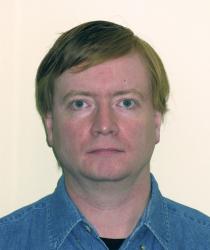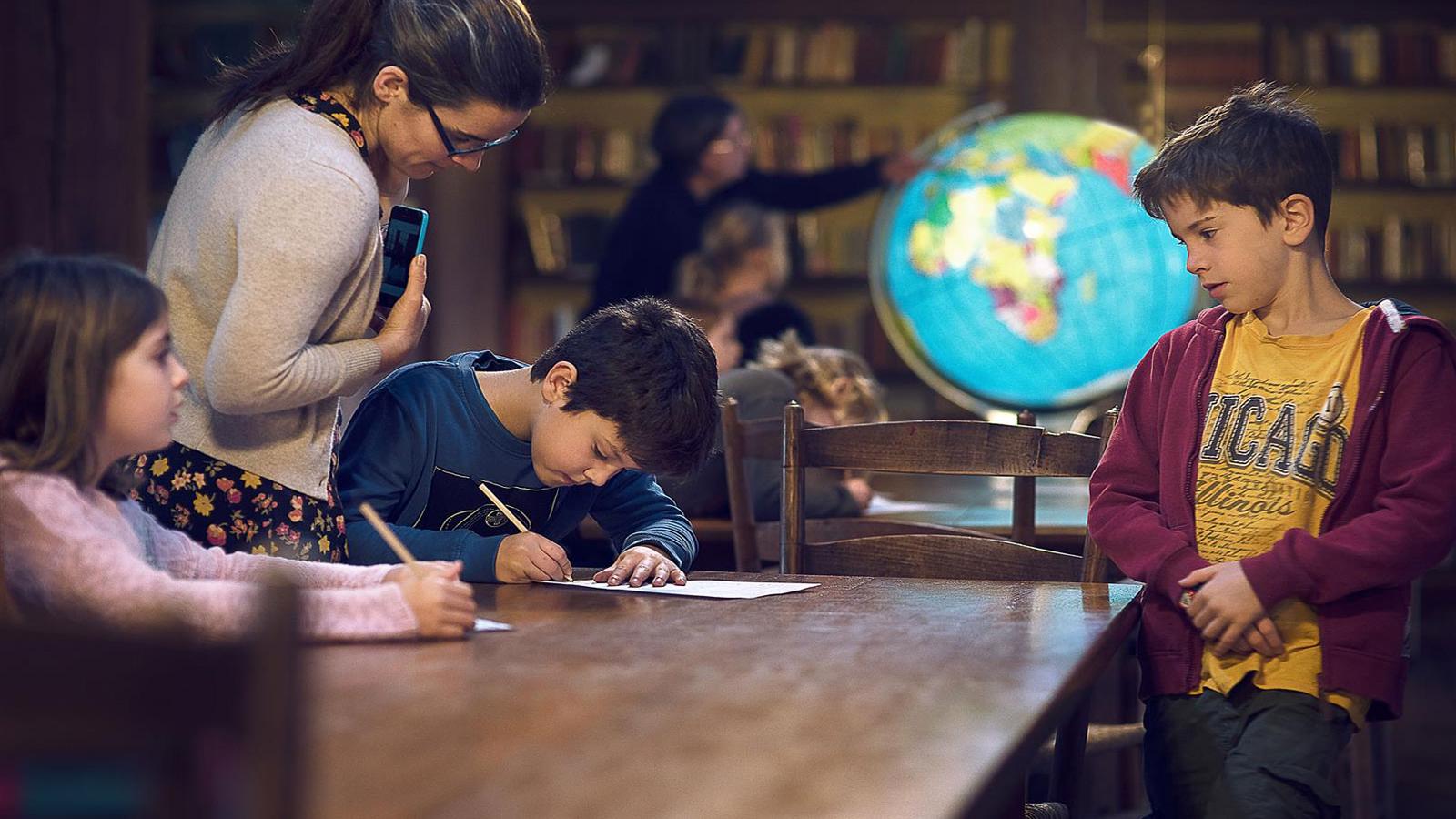
“One of the things that I would say about Bedales,” observes Maurice Snell judiciously, “is that my children, who are there now, could have gone to any school and been good at maths. What they wouldn’t have gained from another school was the benefit of getting to know such a wide range of things that wouldn’t have come so naturally to them. I’m a great believer in the BAC as an exam concept; if it were up to me, I’d say that all children should keep all their options open for as long as possible.”
Maurice himself was already an accomplished mathematician and scientist by the time he arrived in the Bedales Sixth Form in 1989. “Music was important to me, my parents and my siblings as well,” Maurice recalls. “I had played the cello and sang while attending a large secondary comprehensive near Brighton, which I had enjoyed at the same time as realising that I was allowed to focus on the subjects that I enjoyed and almost to forget about those that I wasn’t great at. Bedales would have allowed me to get much more out of myself in an all-round way.”
As was then the fashion, Maurice boarded for his first half-term at Bedales. With his family safely re-settled in Hampshire, he immediately made a small number of close and lasting friendships. “There were a few cliques, as there are in most schools,” Maurice notes, “but those friends have for the most part been retained to this day. To some degree, my choice of A Level subjects slightly restricted my circle but as a day pupil, I found that I settled in pretty quickly.”
Much of Maurice’s time was focused on his academic studies of maths (pure and applied), chemistry, physics and computer science, in which he found no shortage of inspirational teachers. “Dennis Archer and the sadly missed Alan Gent were brilliant mentors for maths, as well as being a lot of fun,” he enthuses. “I remember Alan taking the further maths group on a field trip to the Lake District just for the hell of it, for example. Then there was Don Spivey in the chemistry labs, so fond of volatile experiments and blowing various things up. Harry Pearson as well and Tobias Hardy, the new young physics teacher, who, years later, was so horrified when I showed up at an Open Day as a prospective parent to realise how quickly time had passed. John Fothergill was another whose lessons I really enjoyed; he was known as Mr. No by some because he was forever refusing any number of crazy computer-oriented requests for technical reasons!”
Academia was by no means Maurice’s only interest; the love of music continued to be fostered and he was also instrumental in re-establishing Bedales Radio. “It was a lot of technical stuff,” he remembers, “running new cables through to the common rooms. I also helped to computerise the Dunannie Library system and did a fair bit of outdoor work, mainly as a way of avoiding any of the sporting activity which never did interest me greatly. It has to be said that the health and safety regulations were a lot more relaxed in my day – I clearly remember losing most of the hair on my head in a bonfire accident one day!”
Oriel College, Oxford would be Maurice’s next academic port of call, where he studied engineering science with computing. “I deliberately went for that option because it was the broadest one available to me,” he reasons. “I wasn’t totally sure what I would be doing as a career but I had a good idea that it would involve computers; if that was going to be the case, I needed the greatest possible breadth of knowledge.” Oriel was the springboard to the next phase of Maurice’s life in more ways than one; it was there that he got to know a Russian girl of his acquaintance who would later become his wife.
Maurice’s university technician father had begun a small business around the time of Maurice’s birth, an enterprise that had started to sprout wings by the time that a decision was needed on Maurice’s professional future. Snell & Wilcox, as the company was originally called, had started life as consultants and contractors in the broadcasting industry, advising clients such as UNESCO on projects to develop infrastructure in parts of the world where there were little or no TV and radio facilities. Subsequently, the company started to manufacture a number of niche products for the broadcasting market and has gone on, through spin-off and merger to grow enormously and place itself at the forefront of the digital media technology industry.
When he joined the family firm as a software engineer, Maurice was particularly conscious of the need to prove himself to his new colleagues. “I felt that I had to show that I was there on merit,” he says. “Because I made the decision to start by focusing on the engineering side of the business, rather than the management, it was easier to show people what I was capable of and that I could do a job for the company.”
The management side would make a more gradual appearance in Maurice’s life: “Between Bedales and Oxford, I’d done a year’s work experience as general dogsbody in a job where marketing was an important part of the requirements,” he explains. “That gave me the opportunity to go to the two global trade fairs that are the key to the broadcasting market – Amsterdam and Las Vegas – and find out a bit about our competitors and what our own customers really wanted. Some engineers find the customer side quite difficult and I would always say that I’m an engineer, rather than a salesman, if I’m asked, but it’s a useful extra string to my bow.”
As Snell & Wilcox grew and its name shortened to Snell (the company was acquired by Quantel in 2014), so Maurice rose up the corporate ladder, becoming a Senior System Consultant in 2013. He accepts that the company culture has changed vastly since he first joined the business: “We’re not a family group any more, we’ve been through a lot of different management structures and some things improve while others are perhaps less satisfactory. That’s the nature of the beast. We still have the name recognition from Dad and some of us have been here for ages so the personal touch still exists in the way that we do business.”
Recent years have offered little cheer for scientific and technological industries in Britain, a fact that Maurice is not slow to emphasise. “Dad always felt that trying to get a British industry going that actually made stuff was a crucial thing to do,” he says. “In general, the current political approach to an area where Britain has so much history and ability has been a dismal failure. Lots of factors make it tough here – competing with Asian competition where it costs peanuts to make things, for instance. In Canada, there are tax breaks for R&D-based companies, which we don’t have here. Education is vital in this industry – my wife has been teaching undergraduates – but cutbacks there are having their inevitable effect as well. As a country, we are getting weaker on the technology side and these are bleak times.”
Turning back to Bedales with some relief, Maurice pays tribute to the place where his children are now following their father’s footsteps. “Bedales has been great for us all - me, my siblings and the children,” he says. “My wife and I always thought that it would be good for the kids to receive that breadth of education, the children love it and we’re lucky to live in such a lovely place, just between Sheet and Petersfield. Some things have changed, of course, but a lot is exactly as I remember it. There might be a greater emphasis now on academic achievement among the younger children than there was in my day and I certainly enjoy seeing mine having their abilities tested and stretched. On the other hand, the music is as strong and beautiful as ever, the art and design is as impressive as it ever was and the school’s core strengths are still very much intact. Long may things stay that way.”
Maurice Snell was interviewed by James Fairweather in June 2015.
